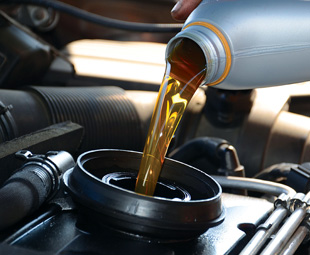Oil’s well that blends well …

It seems that, contrary to popular belief, there are three things that are inevitable in life: death, taxes – and the fact that using inferior engine oil will cause long-term complications for any engine. KIM KEMP investigates the implications of taking this cheaper route …
For engine components to function optimally, good quality oil is vital for lubrication. Too viscous, and parts become unable to move smoothly, causing components to slow down; too thin and parts wear too fast. As parts move at high speed, heat can build and, the less lubricating the oil, the more chance there is for the parts to fail. Keeping the moving metal parts coated in oil and moving together smoothly is hampered if the oil quality is compromised in any way.
Norman Janse van Rensburg, filtration product manager, Cummins, stresses that the quality of lubrication and filtration is critical in achieving the optimal performance and desired lifespan of an engine. He says that one of the biggest challenges facing the local industry is the influx of cheap and inferior lubrication products, concocted by “micro-blenders”, with little to no expertise.
“In recent years, poor products have caused numerous problems for fleet owners, which have proved to be costly, as their unreliability resulted in breakdowns and the need for constant servicing,” he adds.
Wearcheck SA’s senior diagnostician, Steven Lara-Lee Lumley, points out, “Using inferior oils can compromise components by creating excessive or abnormal wear, overheating and the build-up of sludge, as can the addition of an unsuitable additive to good-quality oil. While,” she concurs, “aftermarket products have their place in the market, the oil that is recommended for vehicles by the original equipment manufacturer (OEM) should be used.”
For Swedish manufacturer Scania South Africa, quality is everything and it produces its own range of oils to ensure protection of components. According to Alexander Taftman, product and marketing director: “With Scania Oil, we can guarantee the quality of the oil throughout the vehicle’s life cycle – thereby preventing premature wear and promoting longevity of components. While clean air and clean fuel are the first steps to achieving a healthy engine, as well as a good quality coolant, you also need high-quality oils for the engine, gearbox and axles to complete the quality circle.”
Scott Pollock, product manager, Terex Trucks, states that there is no room for compromise when it comes to quality lubricants: “It is critical to select the correct specification of oils and lubricants to provide required component performance and protection against potential accelerated wear and premature failure. The correct selection and conditioning of oils provide component lubrication, cooling and protective properties, which all uphold the performance and expected service life of our trucks.
“Along with regular monitoring and servicing, systems will keep running efficiently, and it is essential to regularly check fluid levels and cleanliness during routine maintenance. Regular oil sampling will provide early evidence of key component breakdown and reduce the impact of unscheduled maintenance.”
Low-grade engine oil will break down much faster than a quality product, having a long-term effect on functionality, as the parts work harder to overcome the lubrication variances. Oil has to withstand (and operate under) high heat and stress, thus, oil that is of poor quality will not withstand the high temperatures and will begin to burn.
This will ultimately result in friction, as metal parts begin to rub together producing metal shavings (shearing) that end up in the system. The heat, not distributed by the oil, can burn gaskets and seals, producing the all too familiar belching black smoke. The oil will then begin to stick to the inner metal surfaces of the engine, reducing lubrication and causing extreme wear.
While changing the oil, or using better-quality oil, can alleviate some of the problem, once build-up has taken place, it is difficult to reverse. Using high-quality oil, and keeping it clean, helps oil to do this job adequately. So oil analysis is vital for the likes of vehicle fleets, specifically.
With OEMs that manufacture various pieces of machinery, using the correct oil is not optional, but imperative. Manuel Agostinho, national technical manager, Babcock Equipment Southern Africa (importers of Volvo construction equipment), is emphatic that there are a number of “local oil blenders” that provide some non-approved oil for certain components to the industry.
He stresses: “Oilcol for example, collects used oil from the industry, refines oil and sells it into the market. Some of this oil does not conform to OEM specifications and is, therefore, at risk of damaging equipment. We have had customers reporting instances of premature engine failure through using oil from some unrecognised local oil suppliers that have blended oil, which does not conform to spec. These are normally the smaller customers, trying to cut operational costs,” he adds.
Agostinho explains that the Volvo Group will certify oil from, for example, Engen, which has been rigorously tested over an extensive period of time. That oil will then be recommended for the OEM’s equipment and machinery. “But,” he adds, “only for that specific application for which it has been tested, as different spec’d oil will be needed for different applications.”
He adds: “Our engine oil must conform to Volvo specs; it must have a number of standard properties including: cleaning, anti-foaming and anti-rust. If non-approved oil is used, component failure will result, with consequential rejection of warranty claims within the warranty period.”
So, if you want to ensure minimal component wear, the range of high-quality oils, lubes and additives, specially developed by quality manufacturers to meet varying equipment needs, is the wise option – whether you want to reduce fuel consumption or cut the cost-per-kilometre of long-haul trips – or to simply retain your warranties …
Published by
Focus on Transport
focusmagsa




